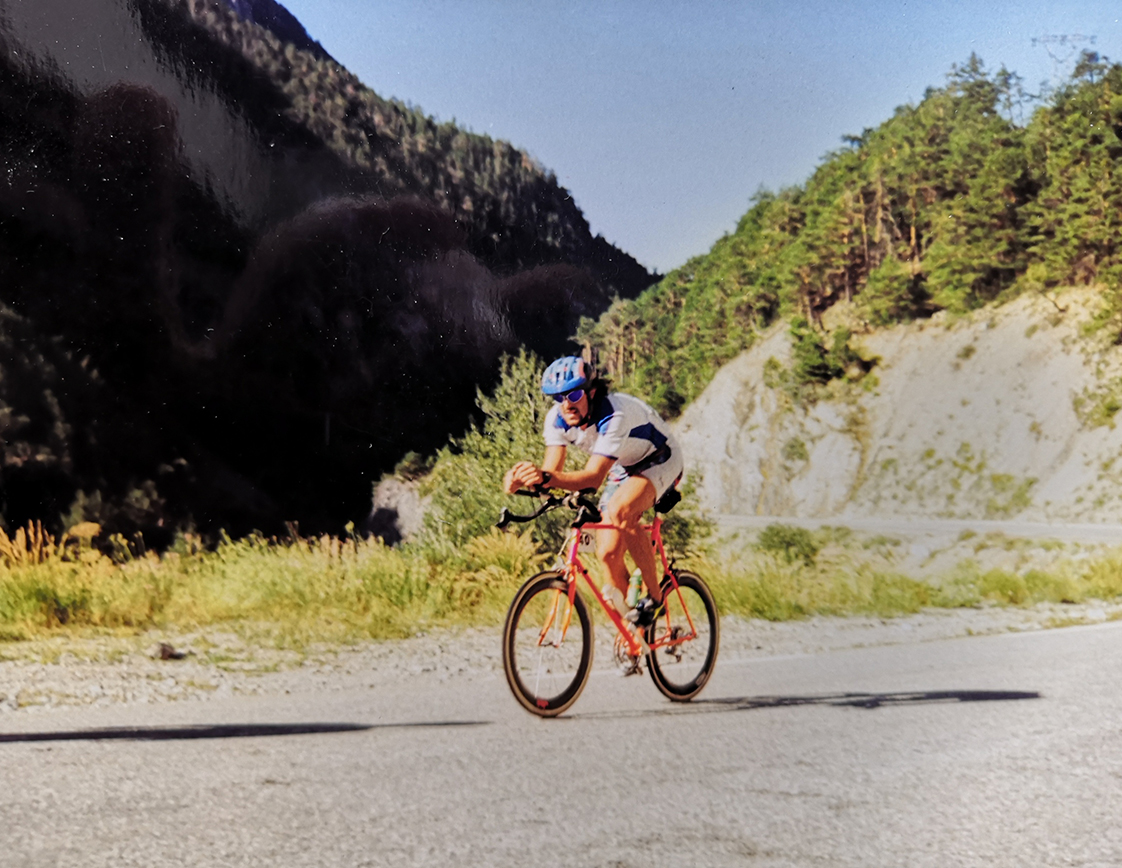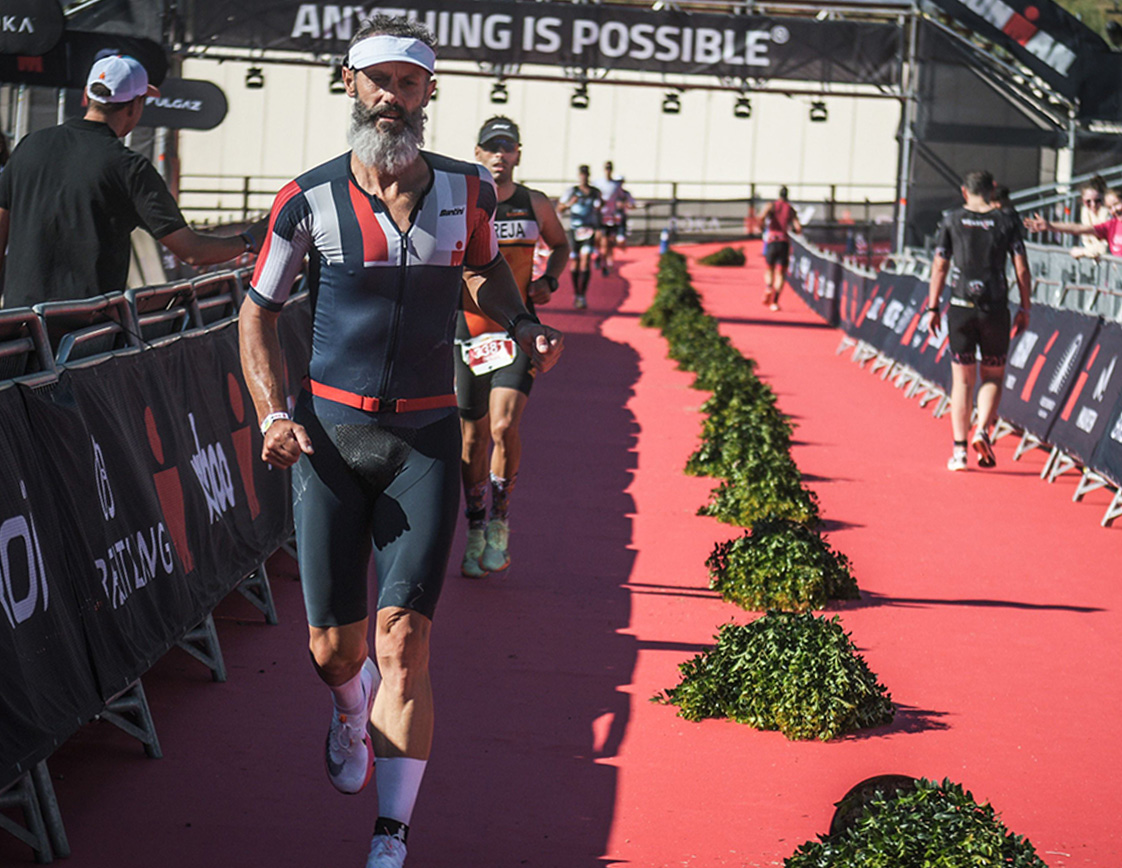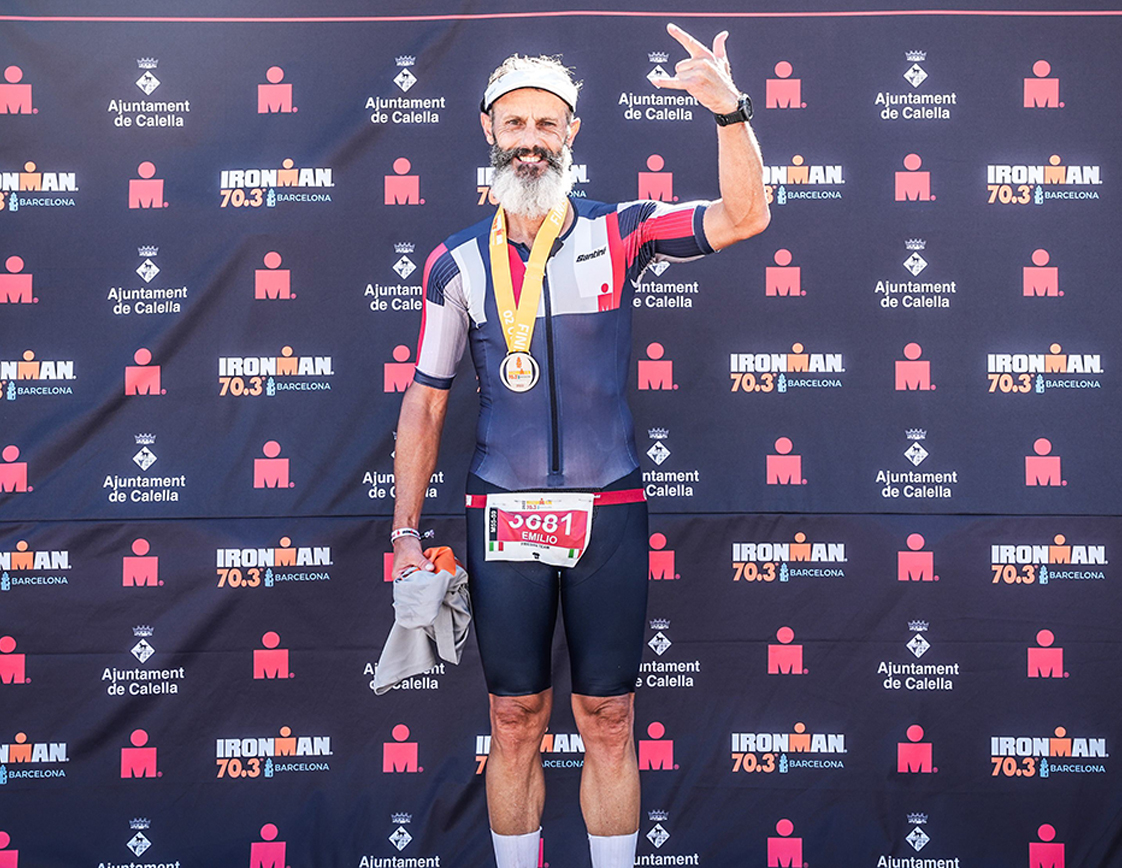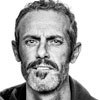
IT'S GREAT TO SUCK AT SOMETHING
Over the last 15 years, I’ve become sort of obsessed with running. I run four times a week and in winter, I do more running than I do training on my bike. The reason is...
Over the last 15 years, I’ve become sort of obsessed with running. I run four times a week and in winter, I do more running than I do training on my bike. The reason is, of course, that, aside from cycling and ski mountaineering, which is my sport of origin, I like triathlons. I’m crazy about them, in fact. The IRONMAN circuit competitions have become my main sporting passion and now they are the only competitive events I take part in. I do regular long distance running training. I do short and fast training sessions, pace training, repetitions, interval training, technical work on the track to improve my ground contact efficiency; I have spent hundreds of euro on running shoes with carbon midsoles of all shapes, sizes and kinds in a bid to improve my speed. Though I never use them because I am too ashamed to put them on, I even bought the shoes that Eliud Kipchoge was wearing when he went under the two hours in a marathon.
And after all that, nothing. I am a crap runner.
I have been a genuinely very poor runner forever. In Italian, they call runners like me a tapascione, someone that runs slowly and badly with little in the way of grace or style. And yet I’m a properly good cyclist. When I’m competing in triathlons, I quite often clock the fastest time in my category in the cycling section. I swim well too, I cycle very well without straining and when I get to the final running running part, I find myself up there with the best athletes in my age-group. And that’s when the trouble begins. As I run along, I am passed out at double my speed by almost every other competitor in the race, be it man or woman, be they thin or overweight, young or not so young. It hurts like hell.
But I don’t give in.
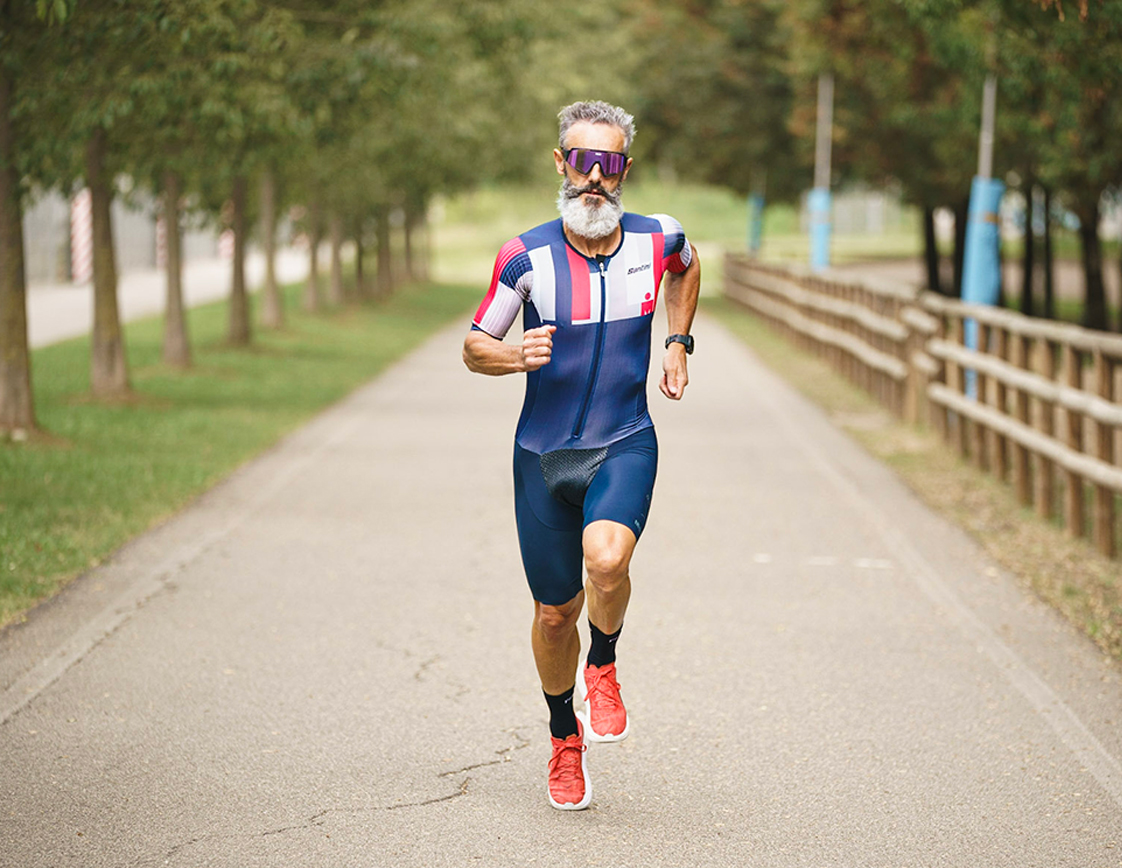
Triathlons came into my life by chance in 1980. One day my father came home after an all-day running + cycling training session. He’d read a very short piece in the Corriere della Sera about this kind of crazy event in the Hawaiian Islands with a 3.8 km swim, 180 km cycle and a final 42 km marathon. He wanted to try triathlon his own way in a solitary training session, shortening the distances by eye “to get a good idea of how difficult it is”. Or so he told my (furious) mother and I to justify his actions. I was at the time 13 and his favourite companion on his sporting adventures. The two days that followed that monster training session my father spent lying in bed with a high temperature – the only time apart from his final illness that I saw him stay home from work.
My personal long distance triathlon adventure, on the other hand, began almost 30 years ago in 1993. My father had passed away very suddenly from cancer four years previously. Before then, I had never run seriously at all. Just skied, climbed, swum and cycled a lot. Along the road to Embrun, home to the Embrunman, one of the planet’s toughest Ironman events because of its 5,500 m D+, including the Col d’Izoard climb, I’d noticed a banner advertising the event. I went to experience it at first-hand out of curiosity because I wanted to see what kind of nutcase athletes there might be competing. The following year, at the age of 25, I was one of them, ready to start.
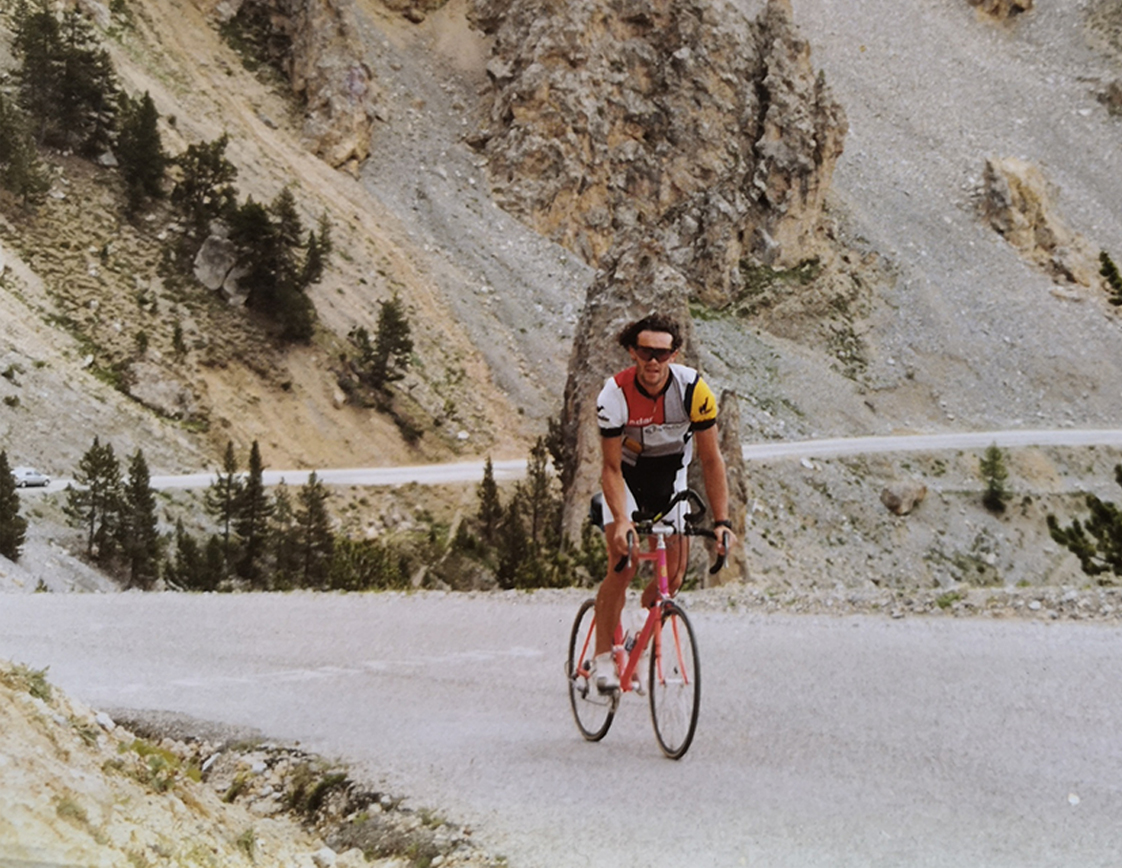
I finished the event no problem and I continued to enthusiastically do others and then others still. So far I have done around 40 over the longest distance, which qualified me to enter in the Ironman World Championship in Kona in 2023. I didn’t do anything particularly heroic. I didn’t qualify on the field by winning my age-group category. What I was given was a kind of career award thanks to the IRONMAN Legacy Program, through which the organisers give the most stubborn and patient athletes that have completed a certain number of races, the chance to take part at least once in their lives in the final event on the circuit, the one in Hawaii where it all began.
I came close to qualifying several times. Once I missed out by a mere 14” seconds compared to the competitor ahead of me and that was a huge disappointment. When I got the call when they were picking the slots, I just stood in the middle of the room with a dry mouth and an enormous lump in my throat. I was the first of the athletes ruled out. But come hell or high water, I never stopped believing and trying, turning up for IRONMAN distance events all over the world. It was fun, a lifelong experience, something that pushed me to keep myself young and improving, but it never spilled over into obsession.
It might seem stupid to say so but at the end of the day, I am happy I have never managed to qualify for the final by winning my age-group (so far at least). If I had managed to do it easily, I would probably have quickly moved on to something else. But instead here I still am, motivated and enthusiastic.
